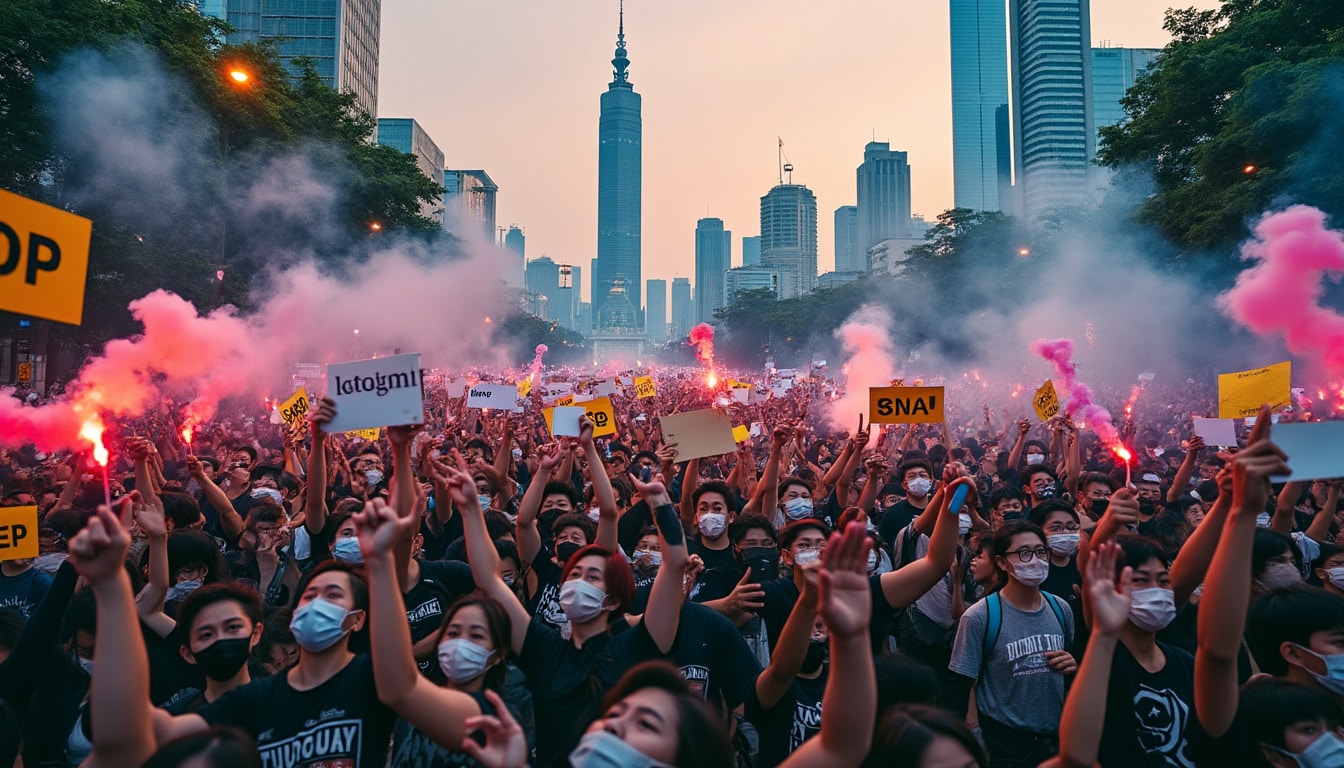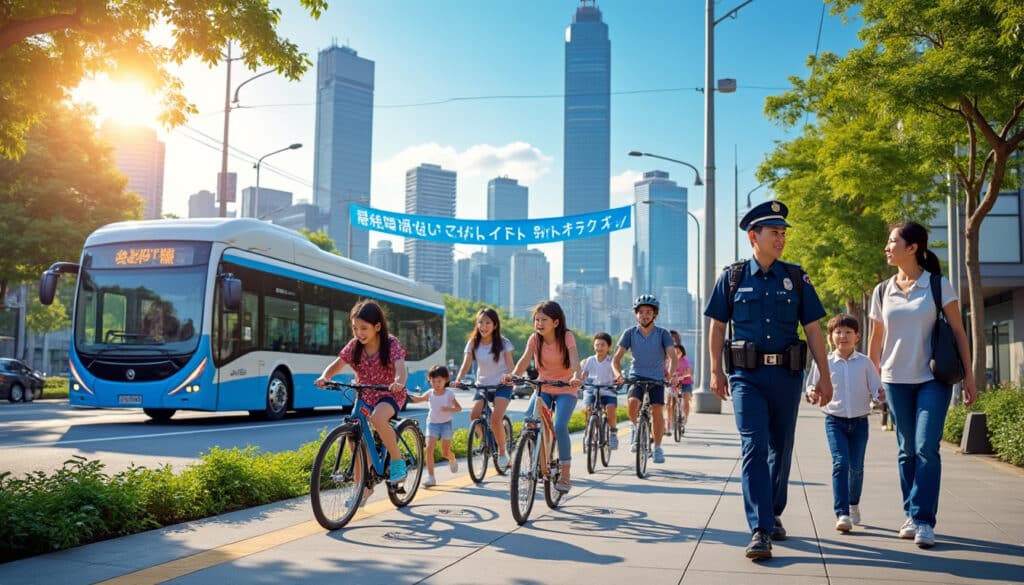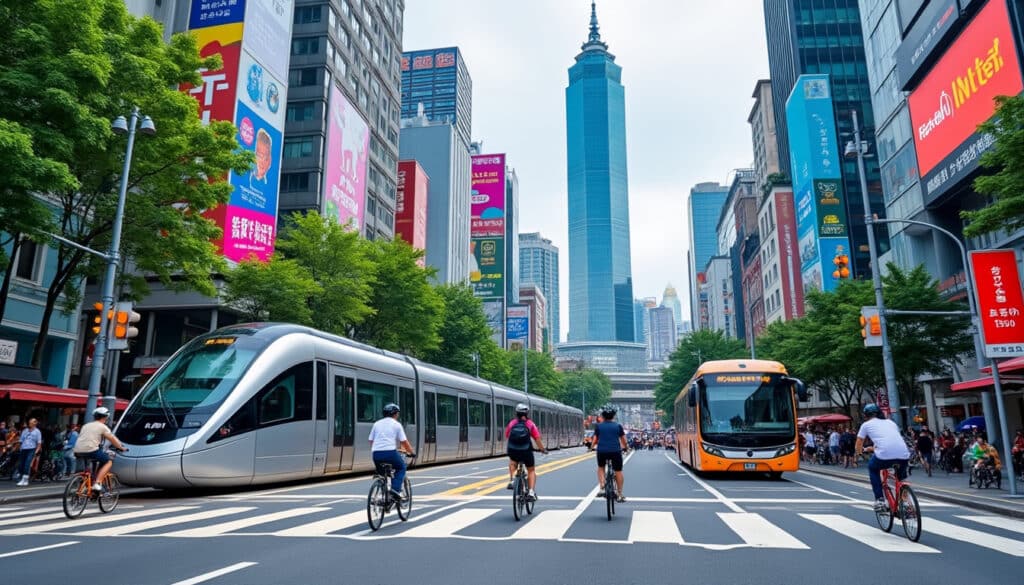Recent years have seen Taipei become the epicenter of significant political and social upheavals. The capital of Taiwan has been the stage for widespread protests that have highlighted deep-rooted divisions within the country’s political landscape. At the heart of these demonstrations lies growing discontent with proposed legislative changes and the direction of the country’s governance under President Lai Ching-te. From debates on legislative powers to broader questions of democracy and sovereignty, the scale of protests has drawn international attention, positioning Taipei as a focal point of regional and global interest.
Political Dynamics Fueling Protests in Taipei
The political scene in Taiwan has been a vibrant, sometimes turbulent, facet of its society. The island’s democratic process is robust, but it is not without its conflicts and challenges. Following the 2024 elections, tension rose between President Lai Ching-te, representing the Democratic Progressive Party (DPP), and the opposition parties, notably the Kuomintang (KMT) and the Taiwan People’s Party (TPP). The opposition succeeded in securing a legislative majority, which allowed them to propose amendments perceived by Lai’s supporters as a threat to his presidential authority.
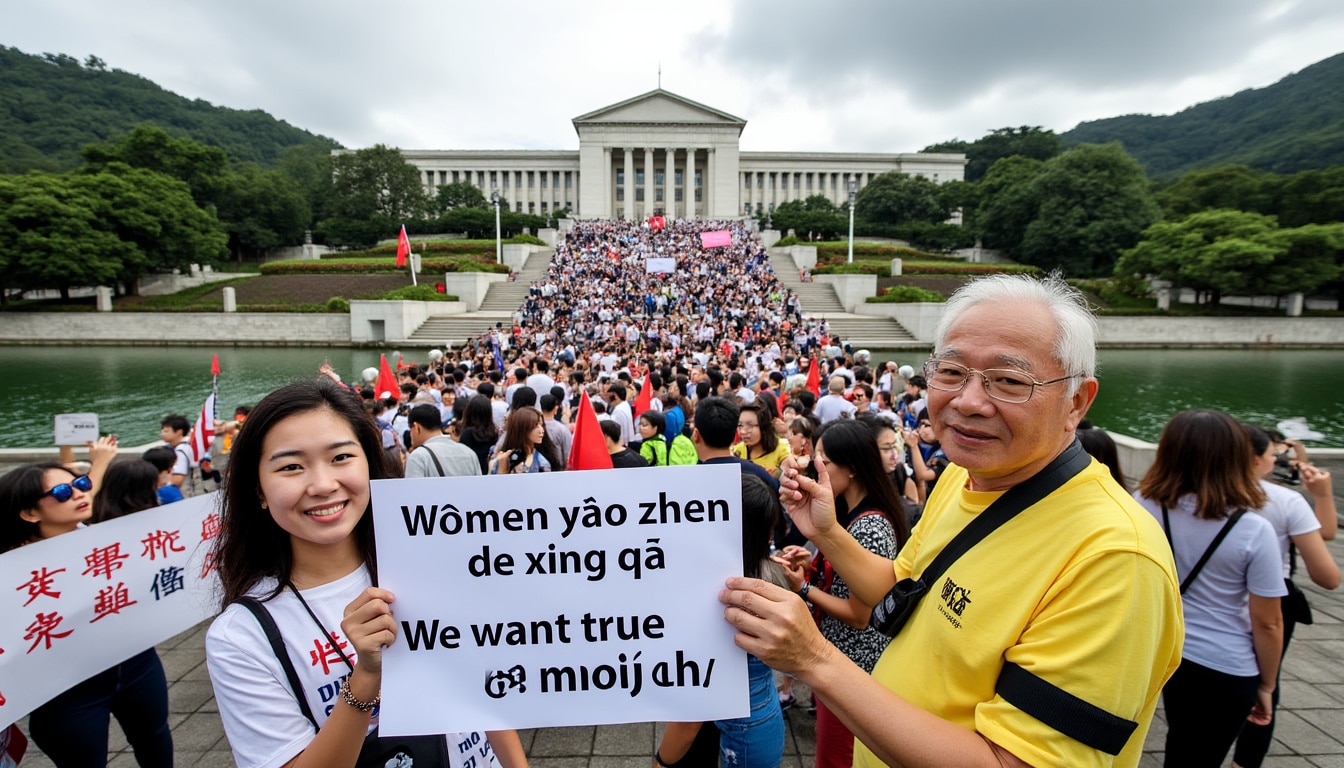
These legislative amendments sparked protests, as they were seen as attempts by the opposition to expand parliamentary power and limit presidential control. The legislative changes included increased investigative powers for lawmakers and the authority to demand documents from government officials, which was perceived by many as overreach. This development has cast a harsh light on Taiwan’s political divides and has been a vivid illustration of the vitality and volatility of democracy.
The Role of Political Parties in the Unrest
The KMT, historically linked to a pro-China stance, and the relatively newer TPP have played pivotal roles in this political drama. Their legislative advances are seen by some supporters of President Lai as politically motivated maneuvers aimed at curbing the DPP’s influence. Politicians like Eric Chu Li-luan have branded Mr. Lai as a “dictator,” accusing him of trying to undermine opposition parties.
This political narrative has resonated strongly within Taipei, leading to mass mobilizations. According to Reuters and Al Jazeera, the dissent has not only been about legislative specifics but has also encompassed larger themes of identity and sovereignty — particularly Taiwan’s fraught relationship with mainland China. The protests have served as a stark reminder of how intertwined local politics and international relations are in shaping Taiwan’s political landscape.
Media Influence and Public Perception
Media coverage, both local and international, has played a crucial role in shaping public perception of these events. Outlets like BBC News, CNN, The Guardian, and the Hong Kong Free Press have reported extensively on the protests, providing varied narratives about the motivations and implications of the social unrest. Such coverage has sometimes amplified tensions by highlighting the alleged influence of the Chinese Communist Party and questioning Taiwan’s democratic resilience.
The strategic communication by these media outlets has guided global audiences in forming opinions about the political climate in Taiwan. This influence underscores the power of media in framing protests not merely as local events but as significant indicators of global political shifts. The resonating message has been clear: Taipei is not just a site of unrest, but a microcosm of broader political struggles.
International Reactions to the Taipei Protests
The international community has kept a watchful eye on the developments in Taipei. Nations across the world recognize Taiwan’s geopolitical importance, especially in relation to China. As such, the responses from global powers have been measured but pointed, emphasizing Taiwan’s democratic integrity while cautioning against escalations that could destabilize the region.
The United States, a long-time supporter of Taiwan, through its Department of State, has reiterated its stance on supporting Taiwan’s democratic values. Reports from Democracy Now! and Human Rights Watch have also highlighted the importance of these demonstrations. They serve as a barometer for Taiwan’s commitment to maintaining its democratic autonomy amidst external pressures.
Critical Views from International Bodies
International organizations like Amnesty International have raised concerns regarding potential human rights issues during the protests. The focus has been on ensuring that the right to peaceful assembly is upheld and that any governmental response remains proportionate and just.
- 🗣️ Statements of concern: Global non-governmental organizations have urged Taiwan to adhere to international human rights standards.
- 🤝 Calls for dialogue: International figures have advocated for political dialogue as a means to resolve legislative disputes.
- 🛡️ Assurances of support: Taiwan’s allies have expressed support for its democratic institutions and processes.
Potential Diplomatic Implications
The protests also pose diplomatic questions for countries that have formal or informal ties with Taiwan. Balancing support for Taiwan’s system with the need for stable relations with China has been the cornerstone of diplomatic strategy for many Western nations. Reports from The Guardian and CNN emphasize the tightrope walk that this diplomatic engagement represents.
The underlying question is how these protests will influence Taiwan’s international standing. The potential for increased tensions across the Taiwan Strait could prompt foreign governments to reassess their policies or enhance their support for the island’s autonomy.
Social Impact of Protests in Urban Taipei
The protests in Taipei have transcended political discourse, impacting daily life, culture, and community dynamics. The city, known for its vibrant street life and bustling markets, has transformed into a platform for political expression and civic activism.
Public spaces, once hubs of cultural exchange and commercial activity, have become stages for passionate political rallies. Human Rights Watch has documented the diversity of voices participating in the protests, highlighting the inclusion of youth, women, and minority groups.
Effects on Taipei’s Urban Life
Demonstrations have led to disruptions in urban mobility, with several key areas cordoned off, affecting public transport and local businesses. However, these challenges have also spurred community engagement, fostering a renewed sense of solidarity among residents.
- 📈 Economic impact: Local businesses have experienced a decrease in foot traffic, but there is a rise in community initiatives supporting protest activities.
- 🌍 Cultural shifts: Increased political awareness and civic participation have become defining features of Taipei’s urban culture.
- 🔗 Community involvement: Neighborhoods have organized support networks for demonstrators, offering food and shelter during extended protests.
Transformation Through Grassroots Movements
The rise in grassroots movements has been one of the most notable social effects of the protests. According to Al Jazeera, these movements have harnessed digital platforms to coordinate activities and amplify their voices globally. Social media has played a pivotal role in both organizing protests and disseminating information, fostering a digitally savvy activist community.
This phenomenon has further blurred the lines between traditional media coverage and personal narratives, as citizen journalists share their perspectives alongside established outlets. The convergence of these sources contributes to a rich tapestry of stories that define the protest movement in Taipei.
The Role of Youth in Taipei’s Social Unrest
Youth involvement has been a cornerstone of the protests in Taipei. Energized by social media and a desire for political efficacy, young people have spearheaded demonstrations and shaped their trajectory. Their actions have often highlighted broader societal issues, such as educational reforms and employment opportunities.
The Activist Generation
Today’s youth are more engaged and informed than ever before, transforming into a driving force for change. Armed with technology and fueled by ideals of justice and democracy, they have taken to the streets not only to protest legislative changes but also to advocate for broader societal reforms.
- 💡 Innovative techniques: Utilizing social media for protest planning and awareness raising.
- 🏗️ Constructive disruption: Initiating dialogues on societal reform beyond mere protest.
- 🎓 Educational involvement: Campaigns by student groups demanding educational and social reforms.
The youth-led movement is not only organized but also strategic, often invoking historical protests in Taiwan to galvanize support. They maintain a clear vision for the future, one that prioritizes democratic principles and social equity.
Challenges and Obstacles
Despite their vigor, young activists face significant challenges, including dealing with political backlash and skepticism from older generations. These obstacles highlight the generational divide within Taiwanese society, as well as differing views on political participation and change.
Reports from Taipei Times and CNN have noted instances where youth efforts have been dismissed as overly idealistic or impractical. However, this has not deterred the burgeoning activist community from persisting in its efforts to influence Taiwan’s political landscape.
Long-term Implications of Protests in Taipei
The protests in Taipei, while rooted in immediate political grievances, suggest deeper structural challenges that Taiwan might face in the coming years. These events have not only shaped the current political landscape but also present significant implications for Taiwan’s future governance, societal cohesion, and international relations.
Impact on Governance and Policy
The legislative standoff between President Lai and the opposition is likely to set a precedent for future governmental debates and decisions. The amendments proposed by the opposition may reshape the legislative framework, affecting executive-legislative relations in Taiwan.
- 📜 Policy shifts: Potential reforms in governance structures and policy-making processes.
- 🏛️ Institutional challenges: Evaluation of the checks and balances within Taiwan’s political system.
- 🗳️ Electoral implications: Influence of protests on upcoming elections and voter sentiment.
Societal Outcomes
Beyond immediate political outcomes, the protests have highlighted societal issues that will likely continue to influence Taiwan’s trajectory. These include identity politics, economic disparities, and the quest for democratic representation.
The role of media, both traditional and social, in disseminating protest ideologies and narratives will continue to be crucial. It underscores the need for comprehensive media literacy to navigate the complexities of modern political discourse.
Regional and Global Ramifications
The implications of Taipei’s protests extend beyond its borders, potentially affecting regional power dynamics and international diplomacy. As Taiwan continues to assert its sovereignty, the interplay between local actions and global reactions will remain a significant aspect of its international strategy.
Data from Human Rights Watch and BBC News suggest that ongoing attention to human rights and democratic practices in Taiwan will be instrumental in shaping foreign policy responses. This interconnectedness highlights Taiwan’s strategic position as a bastion of democracy in the face of shifting geopolitical landscapes.
Looking Forward
As the city navigates these protests, Taipei stands at a crossroads of opportunity and challenge. The decisions made today will carry profound implications for the island’s future — politically, socially, and internationally. Observers and participants alike anticipate where the momentum will lead, with hopes that Taiwan will emerge stronger and more unified.
FAQ
- What sparked the recent protests in Taipei? The protests were primarily triggered by proposed legislative changes that many perceive as limiting the president’s power and expanding the legislature’s authority.
- Who is leading the protests in Taipei? The protests have seen participation from a broad coalition of people, including political activists, youth, and civic organizations, with significant organization from opposition political parties.
- How has the international community responded to the protests? The international community has shown concern, urging respect for democratic principles and human rights, while some nations have reiterated support for Taiwan’s democratic structures.
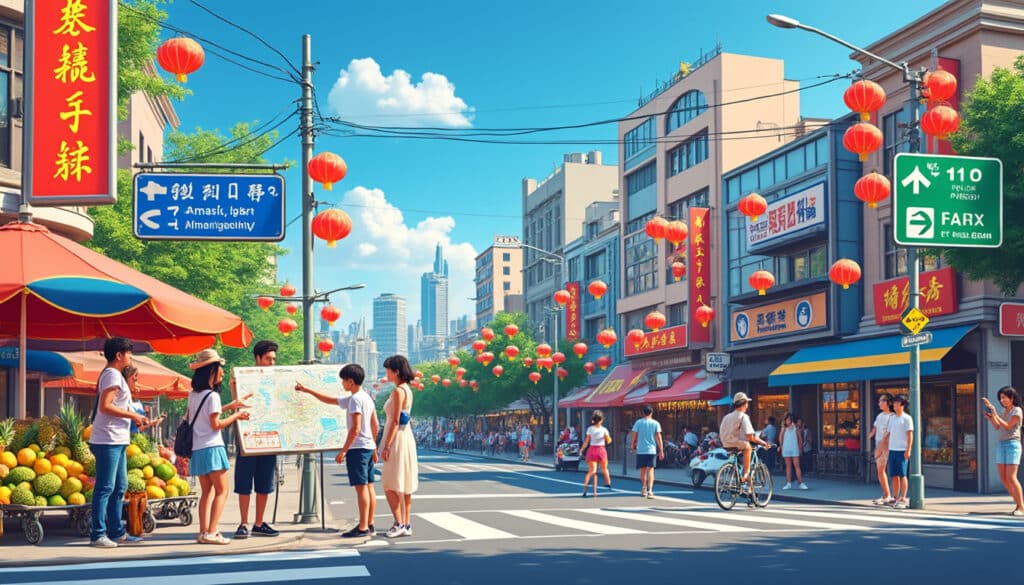
As an urban oasis brimming with culture, Taipei tantalizes travelers with its eclectic mix of street food, night markets, and historic temples. However, navigating this vibrant city safely remains a priority for both newcomers and seasoned travelers. While Taipei is…
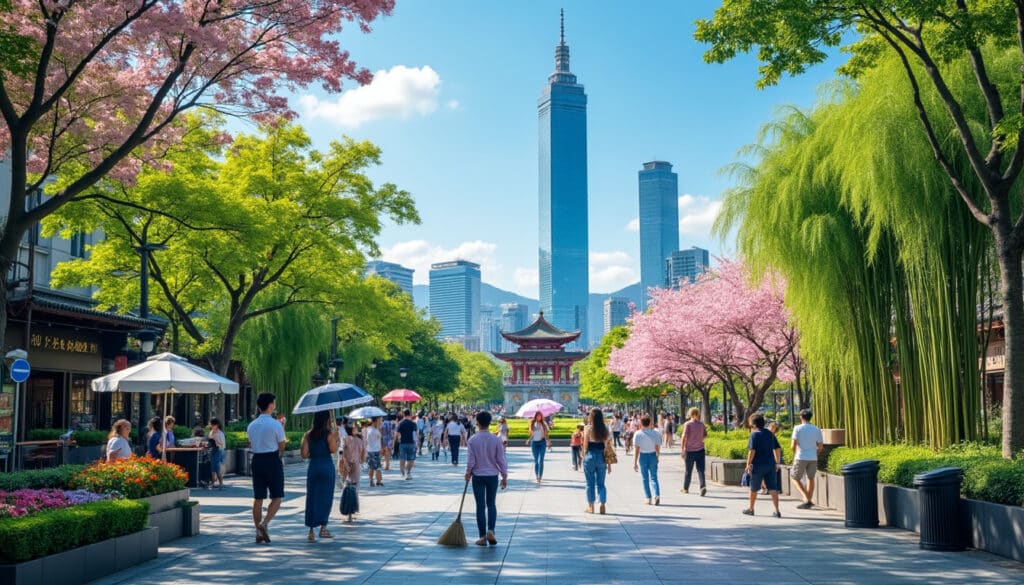
Cleanliness and hygiene in Taipei
Taipei, the bustling capital of Taiwan, is a city where tradition and modernity merge seamlessly, offering residents and visitors a vibrant, multifaceted lifestyle. Beyond its iconic skyline and rich cultural scene, Taipei is noted for its commitment to cleanliness and…
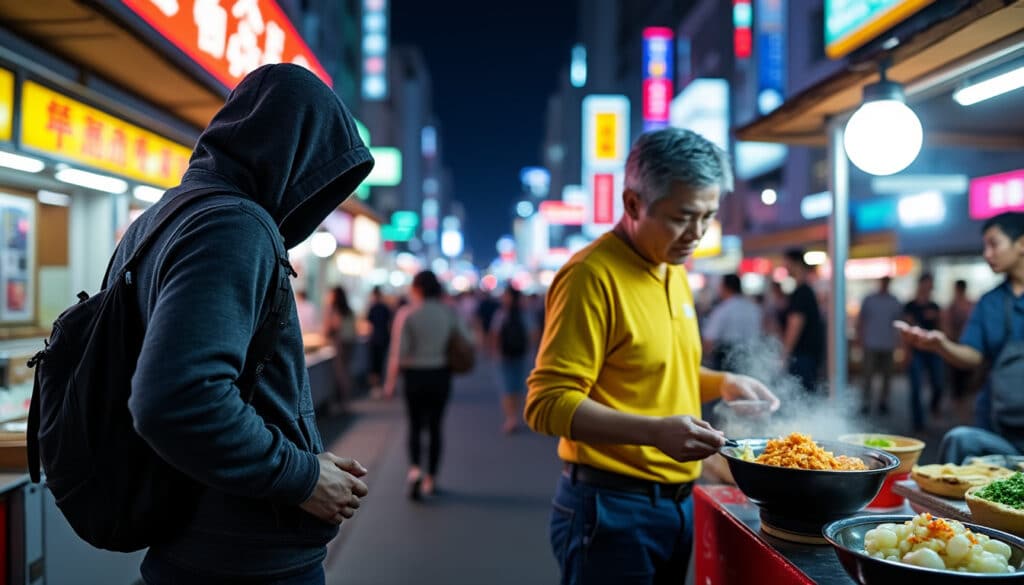
Pickpocketing and theft in Taipei
Despite Taipei’s reputation as one of the safest cities in the world, petty crimes such as pickpocketing and theft occasionally occur. For travelers and locals alike, understanding the risks and taking appropriate measures can help maintain this city’s sense of…
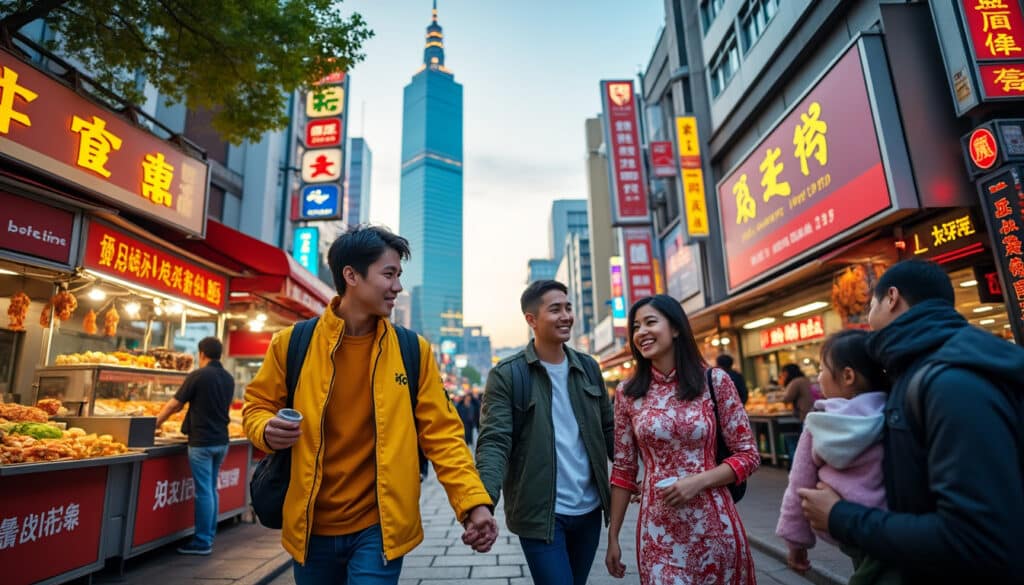
Safety in Taipei for travelers from different countries
Taipei, the bustling capital of Taiwan, welcomes travelers with its rich cultural tapestry, modern marvels, and an enviable reputation for safety. As visitors from around the globe flock to this Southeast Asian jewel, questions about security and well-being naturally arise.…

